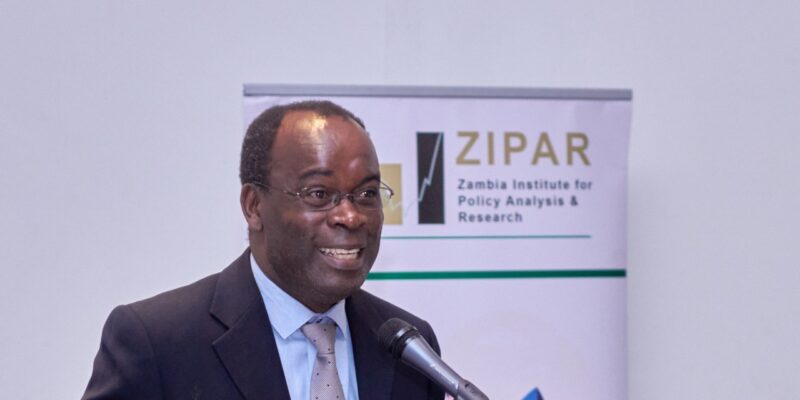The positive review of the International Monetary Fund (IMF) is a vote of confidence in the Zambian economy as it is an indication of resolve by government to place the economy back on a growth trajectory.
This is according to the Zambia Institute of Policy Analysis and Research (ZIPAR) Executive Director, Herrick Mpuku, in a statement issued on Friday.
Mpuku said this endorsement was also a good signal to the business community as it reflected the country’s commitment to providing an enabling environment for private sector led growth.
“This is critical as Zambia mobilizes the necessary resources for development and debt repayment.
“Further, the subsequent funds from the IMF provide the much-needed financial resources to help revive the economy, provide budget support and boost the country’s reserves, giving it room to maneuver as it implements the necessary policies to support growth,” he said.
Read more: Zambia, Creditors finally reach debt treatment deal, paves way for $188 million IMF disbursement
Mpuku, however, stated that caution should be taken in utilising funds such as the US$189 million from the IMF to make investments in meaningful sectors of the economy that foster economic growth.
He said this development, coupled with the conclusion of the debt restructuring negotiation, bodes well for the country in the short to medium term.
“The fiscal space arising from those developments provides an opportunity for the country to spend on productive economic actions as well as to achieve some level of social protection for the country.
“The IMF$189 million comes on the back of a domestic policy initiative by the government to inject liquidity into the economy,” Mpuku said.
Going forward, he said, Zambia should be steadied on the path of fiscal prudence but continue to look out for domestic revenue mobilisation risks.
Mpuku said more vigorous policies were needed especially around economic diversification, and job creation as the economy was still heavily dependent on copper revenue which was highly susceptible to price fluctuations on the international market and increasingly becoming more mechanised.
“Therefore, growing the productive sectors of the economy is key to raise domestic revenue and increase the country’s ability to repay its debt, as and when payments fall due, in the near future,” he said.
WARNING! All rights reserved. This material, and other digital content on this website, may not be reproduced, published, broadcast, rewritten or redistributed in whole or in part without prior express permission from ZAMBIA MONITOR.












Comments